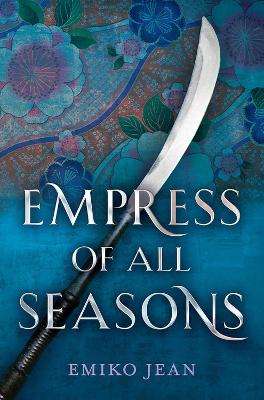Reviewed by girlinthepages on
Told in a three part POV structure, the most compelling chapters were those narrated by protagonist Mari, who has been training all of her life training for a deadly competition that could make her the empress. I appreciated how Mari's strength and purpose as a characters was rooted in her physical and mental capabilities rather than her appearance, but the story also didn't go so far as to make her hideously unattractive- she's just a rather plain, average looking person living among a community of unusually beautiful women. The message of the book didn't go so far as to say "attractive people are evil," rather it highlighted that there are plenty of plainer looking people out there who have just as unique and important capabilities as beautiful people. The balance the story strikes surrounding this topic is just right.
As can be inferred from the synopsis, the main focus of the plot is Mari's participation in the daring and deadly competition to win the prince's (and future emperor's) hand in marriage, by defeating and surviving the four "seasonal" rooms in the Palace of Illusions. I was worried that the story would feel too Hunger Games-ish with the whole "battle against other young adults and the last one standing wins" premise but it was actually surprisingly unique. The Palace of Illusions holds four doors, each one leading to a seasonal realm where participants have to survive the elements and obstacles thrown at them, solve a riddle, and then find a scroll that allows them to move on to the next room. It was interesting to see what kind of seasonal challenges were thrown their way in each room, and I found myself interested by the juxtaposition between the dangers the competitors faced in the seasonal rooms compared to the fond memories the prince had of playing in them growing up (for example: horrifying, deadly blizzard vs. serenely ice skating during a gentle snow fall). However, one of my biggest disappointments during my reading experience is that I wish more page time had been dedicated to the competition rounds inside the rooms- the first room (Summer) is fleshed out pretty well but we spend progressively less and less time in each room as the story goes on, and the numbers drop really rapidly (from hundreds of competitors to just ten between the first and second seasons).
As mentioned previously, the book had two other POV characters aside from Mari- Prince Taro and "Son of Nightmares" Akira. In a twist that will likely surprise no one, a love triangle ensues, that's definitely susceptible to some insta-love since the book takes place over the course of just a few short days. Honestly (I feel like I say this increasingly in my reviews) this story would have been just as strong (if not STRONGER) with less romance. I understand why some was needed since it is a competition for marriage after all, but I found myself not invested in any of the ships and kept eagerly awaiting when I could return to Mari's chapters.
Perhaps the uniquest thing about Empress of All Seasons for me was the inclusion of folklore and myth about the Pantheon of Gods in the fictional universe. Every so often (usually before entering a seasonal room) there would be a short little vignette telling the tale about gods/goddesses that explained some seasonal or natural phenomenon- how humans and yokai (chimera like creatures) were created, why winter happens, etc, and the end of the novel actually wraps up with one of these stories too in a way that ties all of the loose ends of the plot together potentially a little abruptly, but it was cool to see Mari's story immortalized along with the other myths that were included I'm always intrigued to see religion/mythology included in books especially fantasy where it really adds to the world building.
Overall: Empress of All Seasons' commitment to feminist themes and dedication to its world building make it a unique choice among YA fantasy novels. While the story ended a little abruptly for me and I could have done without the multiple POVs, I greatly enjoyed Mari's journey, the unique settings of the seasonal rooms, and matriarchal themes throughout the story. This review was originally posted on Girl in the Pages
Reading updates
- Started reading
- 12 November, 2018: Finished reading
- 12 November, 2018: Reviewed
